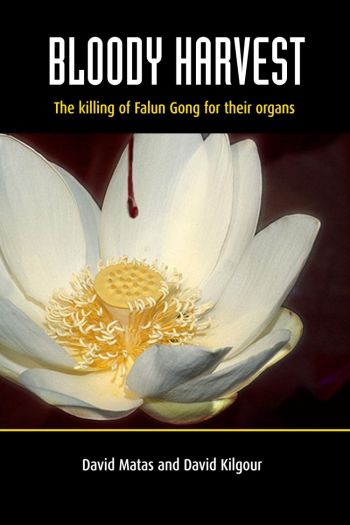Worst Drought in a Millennium Creates Severe Food Shortages in South China
Posted by Author on April 3, 2010
The Epochtimes, Apr. 1, 2010-
Southern China is experiencing its worst drought in living memory, impacting 61.3 million people in the provinces of Guangxi, Sichuan, Guizhou, Yunnan, the city of Chongqing, and surrounding areas.
The Chinese Ministry of Civil Affairs has released a disaster brief, and second-in-charge of the Chinese Communist Party, Wen Jiabao, has done the rounds to the drought affected areas, rallying the troops.
The supply of drinking water for 18 million people, and water for 11.7 million large livestock and five million hectares (12.5 million acres) of farmland are compromised; more than 1.15 million hectares (2.9 million acres) of farmland already decimated.
The direct economic loss is estimated at 23.66 billion yuan (US$2.85 billion).
Wen Jiabao went to Qujing, a city in Yunnan Province from March 19-21 to inspect the region. Beijing News reported that he told local cadres to “prepare for the worst” after he was informed that millions of mu (one mu equals 7.176 sq. feet) in crops had perished from drought in the city.
In response, the Chinese Ministry of Finance and the Ministry of Civil Affairs have allocated 155 million yuan for drought relief, an average of three yuan (US$0.5) per person.
Guizhou Province released an official announcement on March 19, reporting that severe drought has affected 84 counties, cities, and other areas with a population of 17.3 million. More than 3.1 million people are short of food.
Some of the reports were a throwback to more bitter times, during the disastrous agricultural collectivization known as the Great Leap Forward, when nearly the entire population was starved and many survived on leaves, wild vegetables, and half-rotting foodstuffs. Chongqing Morning Post reported that some villagers of Xiaowanshan Village in Yunnan Province are surviving on the so-called “starving sheep plant,” a wild plant that sheep normally refuse to eat. These villagers are said to have nothing more left at home to eat.
The drought affecting Yunnan exceeds any from over the past millennium, according to the local department of meteorology. It is estimated that by May, one out of four people will have no drinking water.
The drought began last fall and has persisted for three consecutive seasons. It could continue through early summer. Seven million people are expected to suffer the effects of the food shortage.
Guangzhou Daily quoted an official from Mile County of Yunnan, on March 22. He said, “Our harvest for early spring crops such as corn, wheat, and kidney beans is zero. We cannot seed for the late spring crops. If there’s no rain by May, major spring crops such as rice are at risk. People will face starvation.”
Shuitang of Wenshan is considered the driest village in Yunnan. It is located on a mountain peak 5,906 feet above sea level.
“There have been no fresh vegetables for three months. Many people forage for wild weeds in the mountains. There’s no drinking water, let alone water for irrigation,” according to Li Shaozhong, a Shuitang village staff member, as reported in City Express.
Li said he pleaded, in tears, for the villagers to leave. “Are you waiting to die of thirst?” he asked them.
In Shibanfang, Yanshan County of Yunnan, Wang Chaoyun, the village party secretary told The Epoch Times, “We are experiencing very severe drought. Villagers have to retrieve water from four miles away. Everyone’s doing nothing but fighting the drought.
“The rivers and ponds are completely dry. There’s no water in wells or cellars. There are no vegetables. The wheat is all dead. Even the mountain trees have wilted. There’s nothing left,” Wang said.
Yang Mingquan, a villager from Xingyi City, Guizhou Province told The Epoch Times, “There’s been no rain since June 15 of last year. Local natural wells have dried up, reservoirs are basically exhausted, and rivers have no water. All streams in the village are gone. Wheat and rapeseed are all dead. All vegetables are dead and gone.”
He said that locals have to retrieve water on a daily basis from streams located 19 miles away. The local government has had to provide the equivalent of five pounds of drinking water per person.
Yang said, “Basically, there’s no water for cattle, horses, or pigs. Most have either been killed or sold. No one can afford them. People are now struggling to survive.”
Yang reflected on Wen Jiabao’s instructions to Party cadres. He said that “Prepare for the worst” really means “This is a life-threatening disaster!” (the Epochtimes)
Sorry, the comment form is closed at this time.





